Rumplestiltskin-Rumplestiltskin-Rumplestiltskin.
by Ruth Gila Berger
 o change: to make the form, nature, content, future course, etc., of something different from what it is or from what it would be if left alone. To transform or convert. Change implies making either an essential difference often amounting to a loss of original identity or a substitution of one thing for another.
o change: to make the form, nature, content, future course, etc., of something different from what it is or from what it would be if left alone. To transform or convert. Change implies making either an essential difference often amounting to a loss of original identity or a substitution of one thing for another.
* * *
A spiderweb riddled with raindrops is shaken by a passing cat and shaken again. Can that path of water be traced? Water slides along the threads and is flung back to its original position. Did it change? Did the cat impart some fundamental influence on how the light then hits and reveals a perfect geometry? Did the cat change its future? Such a web is one of the most dazzling things to see, always, always unexpected and alarming.
* * *
If you go to treatment for chemical dependency, which I did, they will tell you that changes made for another person are inherently fragile, not lasting. Soon fraught with resentment they boomerang. On a basic level this is a view with which I agree. Yet. To answer the question, how has knowing Christi changed me? Because her experience casts light on mine, and through that prism, so much blue churns. The cadmium answers. And what I see is that I want to change how I relate, not just to Christi, but to other people in my life. Knowing exactly where or how that interpersonal weave has shifted, knowing exactly when I turned around to catch and repair any given stitch is hard to trace. Right now the change in me is about many conversations I would have never previously even imagined having.
* * *
I was, I am, the girl who loves dandelions. Their silver streaks across my history and I need to gather at least one strand from every plant in the yard. Momma had a baby and her head popped off. Each flower flies off, a different vision. I wish I could cut the memories as easily a that stalk-severing snap. But they always come back. The most obvious reevaluation of my relationship with my mother was prompted by the fact that Christi’s died when she was fifteen. That loss shines light on value, that no matter what my relationship with my mother was, it is a living, breathing thing that could grow and change.
* * *
Do you know where you’re goin to? Do you like the things that life is showing you? Where are you goin to? Do you know? Do you get what you’re hopin for when you look behind you, there’s no open doors what are you hopin for? Do you know?
* * *
The first time Christi met my parents was in July; we’d been dating since February. It was during this visit I realized I was no longer a fly caught in amber, unable to move or change and it was during this visit I would realize just how much I had changed.
For my parents’ visit, I engineered around obstacles. There would be no awkward moment at the airport; I had my parents book a rental car; they’d need it regardless. And because I wanted this to be a new start, I tried to give Christi a different set of stories, to show her something other than the trashy set of teacups I have always hauled out to put on display, chipped, cracked and gritty. I worked hard to tell her about happy times. Almost all my stories took place within the grease stained walls of my parents’ kitchen. We were a food-obsessed family, with my dad’s Crohn’s so many things had to be avoided. I grew up reading ingredient lists. Bread should be flour, water, salt and yeast.
I told Christi about how I started to cook before I started school. My parents got me a kid’s cookbook, Look I can Cook! It had goofy illustrations. My favorite thing was Crocque Monsieurs, grilled ham and cheese. From there I went on to make my own recipes.
“What they had to eat,” I said. “I loved candles and made them eat by candlelight. Pissed my dad off in such a big way. He liked to see. I don’t know. They were really kind of extraordinary. Like I used to sing them these operas I made up—that they listened more than once is astounding. Jesus. My mom drove me to ballet like every other day. She hated driving but I don’t remember her ever yelling at me about it. You know, that she was doing something I should be grateful for? The lists of things, I take you everywhere, I get you everything, all that. I mean there was all this generosity. And I didn’t do anything to deserve it, not really.”
“My parents took me to swimming twice a day,” Christi interrupted me.
“Yeah, your dad said you could quit at any time.”
Christi nodded.
“Wow. You remember I told you that? All I know is if I were my dad, I would’ve been angry,” she said.
“My parents were really pretty great,” I said. “They even went to see a speed metal band. It was right after high school. My boyfriend played the bass. You should’ve seen them dancing. I mean I wasn’t embarrassed, not exactly. But oye, remember the Cosby Show, second season, the opening sequence? My dad was kinda like that. Only he wasn’t Bill Cosby. It was a moment for them and me. I want you to love them. You know? Not to enter it all accusations. I mean. Nevermind. At this point there really aren’t those accusations to make.”
The week before my parents were set to visit Christi called me at work. An accident. She’d gotten McDonald’s and was chasing a fry, those last ones in the bag under the napkins after she’d finished the red thing of them and didn’t see the Suburban in front of her stop before it was too late. Her CRV was smashed.
“He didn’t even have a dent,” she told me. “Jackass came out all whiny and screaming at me. It was stop and go traffic. At the fastest I was going was under twenty. Bubbles whole front needs rebuilding. Vina will do it, he won’t even charge me for rent since I can’t pay all of it but how am I going to get the money, two thousand dollars?”
Later that night Christi buried her head under the covers.
“What am I going to do without a car. There’s no bus to the studio. To where I work. I can’t take the bus anyway. I have a mental illness. Everyone on there is crazy during the day. Crazy people make me more crazy. All the shouting,” Christi wailed. “Shit I need the car for Matt. What am I going to do?”
I stared at Christi. I’d recently met Matt. He was sweet. A friend of hers who’d found himself with a cancerous tumor in his brain. He’d tried for bright and bubbly that day but he was sick, broke and uninsured, a bulb on the fritz. He’d answered the door and his white Pomeranian mini did a NASCAR on the rung when we entered the foyer. Matt quickly led us to the living room where he could sit down again. They went over what he needed from the store and when his appointments were that week. Before we left he handed Christi two large bags of pills. Vicodin, Percocet, Oxycontin. He had a refillable prescription for all three but felt more sick when he took them. Christi, being darkly connected, sold them with interest and gave him the money. With this arrangement he paid rent and didn’t bounce the check he wrote for cable and electricity.
The last time pills were easy for me was when I was in India with its newspaper kiosk pharmacies. Open air, a counter on the street. Just memorize the generics a friend had advised me. That stash was years gone.
Happily I helped Christi take her tithe of freebies. Like fine sandpaper—I’ve long loved pills—they smooth all edges, chemical hands that shape the world, make it clay, squished down in size. They cut the worst off the menstrual cramps that doubled me often enough when standing on line at the post office. They allowed me to stand straight those days.
“Honey,” I said. “It’ll be okay. Really. We’ll share my car. You’ll have me to drive to work everyday, pick me up. That’ll be pain but you can deal with it. I have a coffee maker. You can save at least $56 a week that way. We’ll figure it out. Don’t worry.”
“What if my coffee sucks. You’ll hate me,” Christi said.
“Just make it stronger,” I said.
“Your parents’ll hate me. Crazy moocher lesbian on disability, Jesus. Your parents will hate me and I’ll lose my mistress,” she said.
“More like you’ll be disgusted at how I am with my parents and want nothing further to do with me. Like one of the early times Craig was with me we were saying goodbye to my mom at the airport. She hugged me and kissed my neck. I actually threw her off of me. I have no idea what I said but she just stood there whispering just a hug, just a hug. Am I any better now? I can’t say.”
This time it was Christi who reached to comfort me.
* * *
Stories have a way of changing, their bones grow or shrink from loss of calcium. What was once solid now shows up in x-rays as a disturbing lace. The story of what we’d forever refer to as my moment on the stairs doesn’t. There might be a few previously forgotten details but the colors stay the same.
I had asked my parents to visit for four days but they scheduled to fly in for six. The explosion came exactly as I was loath to predict, on the fifth day of their visit. Up to this point things between us have gone swimmingly. Christi’s studio, restaurants, conversation. There were no presumptuous digs about my last relationship—my ex in comparison with Christi. Perhaps I had a few small sores in my mouth from where I’d worried the sides of my cheeks. Perhaps I had started to dig my nails into the palms of my hands. But my patience was a frozen lake, smooth, no cracks. My mother regaled Christi with her knowledge of artists and art history, her theories about this or that painting, eyes sparking, thrilled to finally have an audience who sat close to me. And although Christi would later confess to feelings of inadequacy next to the collective intellect of my family, her dimples populated a galaxy as she told my parents stories. Together the four of us went to Christi’s apartment to meet her roommate Howard and their animals. My parents’ skin glowed in the bright inclusion. Christi beamed. Grudgingly, chafing, I conceded the invisible concrete I moved in was awkward and unnecessary. Although each night we agreed Christi should go home, we kissed, caved, and she stayed. Sunday I planned our dinner for Monday. I’d have to get up early to marinate the steak and prepare the tomatoes for slow-roasting before I went to work.
In the car that morning I instructed Christi to make sure my dad started the grill before she left to get me so I could run upstairs, change, and do the rest of the cooking. Risotto with shrimp, shallots, basil, red pepper flakes and the tomatoes. An Argentinean parmesan cheese.
“Yummy,” Christi smiled at me.
A chill waltzed the sweat on my body and I turned to her, goose-pimply.
“The last time I cooked for them was a disaster. A total fucking disaster,” I said. “I forget what I was making but it had zucchini and the zucchini ruined everything. It was so bitter I spit it out. Like actually spit it at the table. Was so disgusting. But my mother had to do her whole fucking martyr thing and keep eating.”
“Sweetie,” Christi plied me. “You’re twitching.”
“Not!” I said.
My blood had turned to bees. The reflection of my face shimmered in the dirty window.
What is wrong with me?
At five o’clock prompt Christ was there to pick me up.
“How was work?” she asked.
I shrugged. When we got home the sky put on a crayon-box evening. The weather wasn’t too hot, it was lovely. My parents were waiting. Their scattered things for a second added extra teeth to wrap my mouth around, my mother’s balled up socks on the rug, two extra shirts on the couch, made it hard to breathe. Pages of the New York Times were everywhere. My mother blocked the stairs so I had to hug her or tell her to get out of the way.
“Excuse me,” I said, ducking roughly.
Once in the bathroom—the tweezers, the mirror—I search for black hairs that need plucking. Grudges, I name them and celebrate the audible catch and slide of their release. On my finger the root of one chin hair has a coat of skin—taste it—almost to my lips before I shudder and wash it away. What if someone were watching? Changed, in fresh make-up, I returned to the kitchen.
“How’s things at Books Consort-e-um?” My mother asked me.
I feel Christi’s eyes. They are soft, dusting me. She knows this needles, my mother’s renaming everything I share.
It’s not totally off base, Christi has told me. Everyone has trouble with names. Like she can’t remember so she goes by association. You work in books, there’s a word, Consortium. Books Consortium. It makes sense, okay?
“Great. Did I tell you I got an office? I finally moved into a real office. It’s pink. Really, really pink. Everyone comments on that, the cognitive dissonance, even people who don’t know me, that it seems a strange color. For me, I mean. Office conversation. Anyway things are great. Busy, everyone’s excited about the catalog this season. We’ve got what’ll probably be the last Kurt Vonnegut,” I said.
Quickly I chopped onions to get the risotto going. Olive oil, toss with rice, chicken broth and simmering. My mother stood behind me.
“Can I help?” she asked.
“No. I’ve got everything. Sit with dad, enjoy. Want a glass of wine?” I smiled. “Christi, I forgot about wine. To ask you. All I’ve got is the cooking. Did you get any?”
Christi’s dismay stormed quickly.
“No, no, no, baby, don’t worry. Not your fault. I wasn’t thinking. You were busy. It’s okay,” I said.
Fussing with the rice, I addressed my mother still behind me, kitchen conversation.
“Risotto’s tricky. You have to time it just right. You want it to need a bite but not be crunchy. Should be creamy,” my voice trailed and stalled after the word creamy as I watched her stiffen and pale.
“Otherwise the texture is wrong, gooey,” I said.
“You didn’t use cream, did you? Your dad can’t eat cream. Charlie can’t digest milk sugars,” she said.
I shook my head.
“No cream. Of course not. Dad can’t eat dairy. I know. Jesus. I know that. What I meant was extra starch dissolves and makes the risotto creamy. It’s a word, ma, creamy,” I say. “Jesus. Relax. Go sit. Really. Talk to dad. Enjoy. I do things faster anyway.”
She ignored my plea but shuffled a little out of the way. She looked so small. I wanted to make her happy.
“Honestly. You can do the dishes,” I laughed. “If you absolutely need to do something.”
For a few minutes the silence was companionable. The rice burbled upon a dash of wine. Smiling I caught Christi’s eye—our check-in—everything was fine.
“Music?” she asked. “Anything?”
“Um huh, the, you know, jazz with the guy. Whoo,” I said.
She got my meaning. A CD we bought on a date—soothing, the memory of a perfect evening. My mom looked at me, uncomprehending.
“Nothing.”
Christi launched into the story. I shook my head slightly.
Ignoring me, Christi bent to my mother.
“We bought a CD at a concert we went to, on a date. A jazz place,” she explained.
The court jester, the bard, the clown, Christi-blue crazy eyes. A born storyteller, my lover, who wants to include everybody, she doesn’t understand my saying nothing and continued in her opportunity. Her phone rang. She held a hand over it and pointed upstairs. I nodded and she left me with my family. Later Christi would tell me she spent most of the conversation trying to get off the phone because she heard me yelling.
In a dance around my kitchen I slid, dipped to grab the grater and turned to get my cheese, mom behind me. Her voice was bleaty, tentacles shivering.
“What are you doing?” she asked.
“Grating cheese,” I said.
“You’re not going to put that on anything, are you?” she asked.
“No, it’s staying in this bowl,” I said.
“Because.”
“Dad has Crohn’s,” I interrupted. “I know. This is for you, me, and Christi.”
My mother hasn’t stopped her conversation.
“He’ll get very sick. He has Crohn’s disease and Celiac Sprue,” she continues.
“Yes ma. No wheat, no dairy. I know. No dairy. For over thirty years,” I say.
She continues gathering speed. I lose track of the back and forth of what gets said. The conversation loops and repeats.
“He can’t,” she says.
“Ma, I know, okay? The cheese is NOT going in anything. Back off,” I say.
Her mouth keeps moving. It is a flying train.
I turn.
There is no present tense, my age now, irrelevant. The years between five, ten, fifteen, twenty-five, thirty-four vanish. We’ve passed that one second where the entirety of my life flies at me, every grievance, all the pick-peck-picking, time backwards, a storm of nails take shreds away my skin and plays bass on my veins. I’m muscle, raw skeleton, vibrating, vibrating. The room holds still a second before I explode.
“You think I’m going to poison my dad? You think I’m some stranger and I need to be told?” I say.
My mother backs away.
“I can’t believe you’re still going on. He’s not in here, worried. What the hell are you doing? I know ABOUT the CHEESE, okay? I can’t believe this,” I say.
Then high decibel, “I WAS THERE MA! Who do you think you’re talking to? I mean. You’re amazing. You really are. I was there. It wasn’t just you. That was my life too. That’s why the cheese in here in a fucking bowl. Do you see that?”
I thrust the bowl towards her face.
“Okay, so you say it once. That’s going to stay separate, right? And I say yes. That’s fine. You worry. Fine. But you gotta stand on top of me and push and push and push. Like I’m going to poison my father? Fuck you. The reason I’m even grating the fucking cheese is for you, a treat, because I know you don’t buy it, like it’s going to contaminate his food through the fucking air. Or maybe you don’t want to make him jealous. Whatever. I don’t care. I was there when he stopped eating cheese. It was like when I had surgery. I was five okay? But no. You’re the only person who could possibly have a memory. His being sick is the story of my whole fucking life, okay? But you know what? Fuck you. You’re RIGHT. It was only you. You know what? I can’t be here,” I say.
“You mean you’re not going to eat your beautiful meal?” my mother asks me.
“No, ma. Your deal,” I say.
She steps closer and reaches towards me.
“Then I won’t eat it either,” she says.
I yank my arms away from her.
“Get out of my way,” I hiss through clenched teeth.
The impulse to grab and shove her dies. My spine is a slinky, melting, it won’t hold me up. I soften, barely whisper.
“Please. Trust me. It’s better that way,” I say.
I start to leave but turn and dash up the stairs where Christi stands momentarily frozen. She catches me.
“I’m here. It’s okay. You’re okay. I’m here,” she says, squeezing me.
My dad finally enters the fray.
“Where are you going?” he asks.
Like a teenager, I shout back, “Out. I. Don’t. Know.”
His tone stays even.
“When will you be back?” he asks.
“Late,” I say, less extreme.
Blinking, Christi steers me. At the driveway she raises her eyebrows. I snap my head away.
“Mexican?” she asks.
“I’m not hungry,” I say.
“Whatever. Margaritas?” she asks.
I nod, now crying.
“Damnit. I’m so sorry. That was exactly, I knew, I didn’t want it to be this way. It’s like everything just goes white. I’m sorry it’s so ugly. I didn’t want. We were doing so great, you know? I really,” I say.
Christi’s hand is large and strong against my leg.
“Honey, it’s okay. There’s history,” she says. “I understand. Taco Morelos?”
I drop my head back so my face is flat below the car ceiling.
“You know the funny thing?” I ask. “I mean you heard me last week. I called her to apologize—right speech, you know?—for all my screaming and cursing. What did I say? That it was disrespectful and she did nothing to deserve it? Shit. Nothing. So what does it take? Nothing. I’m right back where I started,” I say.
We sit at our usual table and order, Enchiladas Suiza and the steak with bacon and jalapenos. Supersize jumbo margaritas. A Mexican game show is playing. Bright and shiny. I get lost in it until we get our drinks. Everything is incredibly large and incredibly far away. I pick up a chip, turn it over and replace it. For a second I’m surprised my feet don’t swing above the floor. Still big. Christi drinks. Nudges a glass towards me.
“Do we have any?” I ask.
Red-red lips expel their straw.
“Phew. Thought you’d never ask me,” she says, passing me a Vicodin.
I crack then swallow the pill in two pieces.
“Better this way,” I say. “Like I would deliberately poison him?”
Christi cocks her head at me.
“I don’t think that’s what she meant,” she says.
Her voice and tequila dance seductive beneath my skin. Microscopic springs release by the thousands.
Rattlesnakes under my skin. My blood is whirring.
“You’re changing the topic,” Christi tells me.
“I didn’t say anything,” I say.
Sheepdog. I need a sheepdog in my head. Keep it together, focus.
“Whatever. You want my take?” she asks.
I nod.
“At the studio the other day. Did you notice how we didn’t really have a conversation?” Christi asks.
“We were talking,” I say.
“Yes but. It was like everything your mom said was about her. We’d look at my painting and somehow I’d never get a word in. Somehow it was very dramatic, When I look at my work, I’m sure you understand. I’m not always sure what I’m trying to communicate. I see things abstractedly. I’ve been studying clouds and planets. What I paint doesn’t necessarily look like a cloud or a planet. Sometimes I spend weeks trying to get one image because of the light, you know how that is. Most people say something, like, I like your painting. Or That’s cool. At the very least, The colors are pretty. How long you’ve been painting? maybe—compliments are nice, you know, even if they’re lying. I think she said Palmer’s one painting was interesting.”
I spill salsa on the menu.
“Which means she doesn’t like it,” I say. “I hate that. It’s so obvious. And now I use it, when I don’t know what to say. It’s interesting.”
Christi’s face goes hound.
“You say that to me,” she says, quietly.
“Well sometimes it is. Interesting. Like there’s a story. Jesus, baby. You know I won’t like everything.”
“What don’t you like?” she asks.
“The octopus Hand of God painting. Besides, if my reaction was always the same it wouldn’t be worth anything. Oh shit. Christi-blue,” I say, food back up my throat.
The waiter comes.
“How’s everything?”
I gulp. Christi is chewing.
“Great,” I say.
“Another drink?” he asks.
We nod, in harmony. He leaves. I wave a chip at Christi.
“So. You were saying?” I ask.
“I was saying. Rah. Even if I was, I wouldn’t be anyway. I don’t know, like, it was strange. I mean I get what you’ve been saying. Your dad’d try to say something and she’d interrupt back to her work again. He wasn’t much better, only with him it was all official sounding. His interpretation of the models, what was it? That he took a narcissistic pleasure in being painted. That she was. . . I forget. You know, those studies I did at Atelier. Nothing like I like the way you use color, or line, or shadow, any of the usual shit. Rah. Jesus. A narcissistic pleasure. If Josie was there she’d be like oh yeah? Think you’re so smart. You think you know everything. And even, even if you did, you don’t anyway. Narsa-sa-sis-DIC. So? I know. Think you’re so smart using big words. Yeah, well, I know big words too! Nars-dic,” she says.
I giggle and cheer, “Go Josie! Go monkeys!”
Christi takes another drink. Shakes her finger at me. Tries not to laugh.
“Monkeys.Really. Don’t encourage them!” She scolds me. “But sweetie, it was strange. Like it was all about him. Not that it wasn’t sweet, in a way. I mean he wasn’t showing off—he was serious. Nobody gets all serious about my shit like that. Just made me feel kinda stupid, you know. But I don’t know. Your parents are awesome. They bought a drawing.”
In her pause, we both look down and drink. Our margaritas are big. Christi continues.
“Then there was all that I’m sure Ruth can tell you it wasn’t easy, growing up with me. Maybe she was baiting you, but almost like showing off. At the studio was really, really strange. You know how babies are like all-about-me? She’s kinda the same way. Otherwise she’s not there. Blind, maybe? Like she can’t make that leap,” Christi says. “You need to stop explaining. It doesn’t matter what tiny pieces you break it into. It’s not simple and she doesn’t understand.”
“It’s, it’s, it’s just, I mean fuck her. Like his being sick wasn’t my fucking life? It’s funny how you learn how things in your family might have been a little different. Like my ex made this huge deal about farting. She said she never did and then she called it fluffing. That made me crazy. Like are you seven? A Victorian lady? You have a body. Everyone farts okay? Her ignorance was stunning. That you had shit in you from years ago and that’s why a yogi who stopped eating kept shitting. This was the reason for colonics. I think she learned that from her ex girlfriend. Eating disorder one might say. When I explained that intestine’s lining sloughs off a healthy person around every seventy-two hours and the bacteria in your gut keep digesting themselves, regardless, she didn’t believe me. I think I left rather than continuing the conversation. I mean of all the fucked up fights, that was the one I walked out the middle of. I’m sorry. I don’t need to be talking about her. Was just I realized a lot alone that night. That growing up the sound of my dad passing gas in his sleep was comforting. It meant he was alive. It wasn’t the soundtrack of him retching or on the toilet in pain. I don’t mean to be disgusting or reveal anything but that’s Crohn’s disease. It was always so extreme, like he could die each time. I’d get home and the fridge would be full of Jell-O and I’d know he was sick. As a kid I was afraid of red light. Like I’d shut my eyes at exit signs and had to move my bedroom because the bridge reflection was paralyzing. Brake light river jiggle. I never put it together, that was red Jell-O, the way it held the light. But you’re not kidding about psychobabble. It’s a second language. I was fluent at five. Defense mechanisms. You’re acting like your mother. Baby Freud. With a twat. How’d you think Freud would like that?” I ask.
Christi waves her straw at me.
“You didn’t let me finish,” she says.
“Sorry,” I say, shrinking.
I suck down my drink. Christi catches and holds my eyes before she starts talking.
“Dzzt. That’s not what I meant. Listen to me. Here’s the thing. You could bang your head against the same wall the rest of your life. What your mom understands is that you’re upset. She’s said something and you’re upset. And given her face, I know she wants to make it right.”
“She’s been apologizing my entire fucking life. It’s great. Nothing changes. Don’t mean shit,” I say.
I shove the chips for emphasis.
“But it does. Now it does. Because that is what she is capable of. What she can give. So it means a lot. To her. To apologize. Which means you can choose to give her the opportunity. You have to plan what you say. You tell her she hurt your feelings and you want an apology. That you didn’t mean to start screaming and you apologize. Nothing more than that. Don’t go into what was said. Don’t get into the why,” Christi says. “You need to practice what you’ll say.”
The Corona bottle filled with salt becomes my microphone.
“So scripted. Hehhem, mom, you hurt my feelings and I want an apology?” I ask.
Christi narrows her eyes.
“And,” she says.
My swallow goes down the wrong pipe and I sputter margarita. Christi squints again.
“And I’m sorry,” she finishes for me.
Suddenly my hands fascinate me. I talk through clay. My voice is tiny.
“And I’m sorry I yelled at you and I shouldn’t have stormed out. I mean I’m not sixteen there’s no reason I should behave that way. You don’t deserve any of it,” I say.
Red-red lips. Firefly dimples flash-flash.
“Exactly. Except I forgot and cursed at you. Ready?” she asks.
“I guess,” I say.
The waiter drops the check and takes our plates.
When did we eat?
Christi pays. We are silent three blocks. At Lake Street I gulp loudly. Christi pets my leg. Once home I follow Christi up the stairs, realize I left my phone in my purse, head back down, and am then trapped by my mother on the stairs. She’s sniffling, she babbles.
“I’m sorry I’m such a horrible person that you can’t even be in the same house,” she says.
I interrupt, “Mom. Stop.”
“That you can’t even eat with,” she continues.
“Stop. Mom, Mom. Stop, okay? Just shut up. Please,” I say.
She doesn’t hear me.
“I know you grew up with, it was difficult, there were deficits.”
This time I interrupt her shouting.
“Shut up. Just shut the fuck up. You don’t get to rehash this idea you have of my life. It’s not. Just not this time,” I pause. Inhale, exhale.
“Look. It’s really simple. You hurt my feelings, I over-reacted and I’m sorry I was shitty,” I say.
My mom takes a breath to speak. I can see her thoughts beneath her forehead lines. Her same words are orange in her throat. They radiate. I cut her off before she can repeat the scene.
“Okay. Now you say Ruth I’m sorry I hurt your feelings. Then I say thank you. End of conversation.”
The evening’s soft purple is swallowed by a darkening gray. The circles under my mother’s eyes absorb our silence and deepen. We have the same hairline, the same shape head. She takes a new now shaky breath.
“Ruth, I’m sorry I hurt your feelings.”
“Thank you. I’m sorry too. I love you mom. Good night.”
One of my cats chases a rabbit-fur mousie with a rattle. We watch him careen around the landing.
My mom starts again.
“I’m so glad,” she says.
An ambulance screams by.
“I’m so glad,” she continues.
This time I cut her off.
“No, you don’t get to do your unworthy martyr bullshit,” I smile—it’s a little forced. “Okay? I love you. You know that.”
A moment goes by.
“’Night mom, I love you, okay?” I say.
I hug her quick and jump away. My dry skin turns hot, cracks like asphalt. Once up the stairs, I collapse into Christi. She pulls me in and kisses my forehead, whispers.
“I’m proud of you sweetie. You did great. Maybe screaming shut the fuck up wasn’t exactly what I was thinking. But you did great.”
We take out contacts and brush our teeth. By rote and routine. Christi whines as I floss.
“You take too long,” she says.
We pee, don pajamas and climb into bed.
Do I realize with this evening my life is changed entirely?
Years later my therapist will tell me, “There is touch that hurts and there is touch that heals. Touch that heals is what you have with Christi.”
* * *
This conversation is a cat bounding through cobwebs, the water that glistened on it now flung against black fur drying fast. That silk is undeniably changed. But can the spider now revise and reweave or does she mourn the loss of food she had caught? It was only after years with Christi that I could conceive of that silk thread to build.
For the most part the conversations I have had with my mother were about impersonal things, slightly above weather level diversions. When I look back for answers as to why, why we were not close there is nothing but blank light hurting my brain. My grievances are first world problems, inadequate details of a privileged life, unreasonable and petty. They feel like squawky justifications. So I was a bullied child, miserable at a regimented private school where they wouldn’t let me read or advance, wahn. So my crying was ignored every day. That doesn’t fully explain it. I was clothed, fed, taken to every kind of lesson, schlepped to friends’, given money, given everything. There was never any violence.
* * *
I am not able to resolve how my mother fits into my sexual memory. The rundown on abusive behaviors. Did she penetrate me with objects? No. Perform oral sex? No. Have me service her? No, I know that didn’t happen. Did she masturbate me? No. But then there is a gray area and I have this weird sense of suggestion, that a suggestion was made to me. A suggestion made by Ray that my mother was the same, that they felt the same about me, a sexual feeling. I have no real memory, just that revulsion; it leadens my bones, houses rattlesnakes under my skin. I have images, frozen moments of space, images of his summer place with its monstrous exposed ceiling beams, bright pillows on the couch, wallpaper that was Victorian advertising and the smell of quiche. Just the sense there was something sexual, about me, something dirty.
* * *
The bath is where I learned to masturbate myself.
Three, four, five, six, I don’t know. Each time I think I’ve got my age pinned down, someone tells me a story they assert was from an earlier time than I thought it did. What I remember. It was a singing feeling up in that hole. Like drinking cider that had turned, undiscovered. From an early age I masturbated often. My parents’ tub had the faucet in the middle on the wall. I put my knees up and my fists under my butt to get it closer to the spigot. My mother came in once and caught me. She laughed.
Doesn’t that feel good. And. It’s important to keep oneself so clean. One’s vagina clean.
And in the bath with me, her stomach a disgusting jiggled planet above the spread purple and floating hairs.
There was another game I played. I had shiny plastic bracelets, bangles. Primary colors, also, pink, purple, aqua and green.
Called them ginnee-rings.
Dimpled knees, scarless hands, I’d stand and wrap my vaginal lips around one, shaking my hips till it fell, and shuddering I plopped back to the water. A little later, I had to be younger than seven, I peed in the diaphragm she left on the bathtub ledge, got out and dumped it out in the toilet. I remember thinking that was also a game to see if I could get there without spilling. It took me years to put together why as a child I hated her singing in the morning.
Bop-dee-be-bop-bum-bum-de-de.
She was too cheerful. Horribly off key. Bouncing, trilling, animal, announcing happy, she had just got laid.
Abusive, not abusive. Neither statement feels completely honest. It is more that I feel used.
* * *
You’ve spun their guilt into gold. Rumplestiltskin-Rumplestiltskin-Rumplestiltskin. You don’t love them.
* * *
Finding peace with memory is a children’s treasure hunt in a grass-overgrown alley. The glint and momentary flash turns out to be one earring missing its stone. A slightly corroded diary key. Half a ripped love letter that has miraculously survived the elements, a perfect plastic rose. I try to keep these pieces close to me, to hold them tight, but it is hard, hard, hard.
* * *
Do you know where you’re goin to? Do you like the things that life is showing you? Where are you goin to? Do you know? Do you get what you’re hopin for when you look behind you, there’s no open doors what are you hopin for? Do you know?
* * *
The hows and whys my relationship with Christi has enabled an ever-less-tentative relationship with my mother are complicated. First listening to her talk about her mom, now gone over a decade, I realize part of my relationship with my mother is all about me and determinedly I can change my reactions. The need to resolve old anger morphs into a clothing, something I can move around in even if it sticks to my skin, that thick air of urgency is a hard one to breathe in. Christi is an artist and perhaps my choice of her as a wife in some way validates my mother and her choices. Whereas I was not previously interested in art this new common soul gives my mother an in with me. Maybe she too has seen the seasons pass in her ever more mapped skin and wrestled with the same sense of urgency to resolve what a bad therapist might abstractly call our differences.
We were in New York visiting my parents. They took us to the Met and the Whitney. My mother then showed Christi her latest group of paintings. Perhaps I was on the phone when they started looking. The result was I opted not to join them. The paintings were of faces.
When Christi comes up to check on me hers is funny. Not twitching, but her forehead worry dents are deep and busy.
“You take your meds?” I ask. “It’s past four thirty.”
“Yeah, early,” she says. “Why?”
“You look, I don’t know. Like you ate something. Funny,” I say.
“Your mom’s painting faces,” Christi says.
I nod.
With a step Christi shuts the bedroom door and grimaces in the mirror.
“God I hope I didn’t make some weird face,” she says horrified.
“You didn’t,” I say. “I’m sure you didn’t. You came in fine.”
I peacock my hands, “You shut the door, then your face went funny. Oh honey don’t worry. In your art class you mentor people, look at stuff and give them feedback. You have that neutral reaction down automatically. It’s the only time I’ve got no clue to what you’re thinking, when we’re at art galleries. If you don’t say I have no idea. It helps when you’re catty.”
The look Christi gives me colors her solidly unconvinced. I sigh.
“God I hope I didn’t react too badly,” Christi says. “I told her I learned by studies done with a model. Studying faces, light, shadow, proportions. How you have sat for me and that maybe she could ask Charlie, I suggested. I don’t think she was offended. Or I hope she wasn’t. But she was a little huffy. I don’t have to look at faces to paint them she said. I know what faces look like. We have them imprinted on us from infancy.”
Christi-blue firefly dimples, like lightening, flash, flash. I stare at her.
“I think you just hit something. Just listen. I don’t have to look at faces; I know what they look like; we have them imprinted on us from infancy. If you substitute the word reality with faces. The fit isn’t perfect but it seriously goes a long way towards explaining things. I don’t know that I’ve ever been able to articulate what it was that was missing with her, outside reality. She’s never been interested in anything I called reality. Because she’s got that already, self-contained. She doesn’t need to look outside for reference, what she’s saying. Faces are imprinted. She doesn’t have to actually look at them to see. Do you remember my moment on the stairs?” I ask. “At dinner before it you said there was something childlike about her, that all-about-me thing one sees in children like she was stuck in her development. Am I making sense? Faces are the most basic place we go for information. The eyes are the window to the soul, you know that shit. Because the idea it’s all imprinted in her seems to explain everything to me. Why at some point I completely stopped trying to relate. There are still missing pieces. There is still that revulsion, that feeling from way back that I was there for some sort of gratification. Her gratification, not sexually so much as I was being used to fill something, some need there was no way of ever identifying. You think I’m crazy.”
“No honey,” Christi laughs halfway.
“It even explains her thing with names. Why she’d change them,” I say.
“That’s a reach. I suck at names,” Christi says.
“No, no. It’s not the same thing. You just ask. You might be embarrassed but you ask. She doesn’t. She renames with confidence, with absolute certainty. I correct her and she repeats the mistake, not the next day but with no time in between. I used to think she did it deliberately because she knew it pushed my buttons but now maybe not. Think about it. I don’t need to look at faces to see them. I don’t need to listen to you. I don’t need anything from your reality. She didn’t say you’re not real to me. My dad does that. Well, did. I don’t know honey. For years I’ve tried to figure out what was missing. Because far as I can tell there’s nothing diagnosable. Maybe some sort of cognitive deficits but again I’m not sure I believe that. She wasn’t interested the reality I moved in. This feels like physics, cracked open, that big,” I say.
* * *
Like rattlesnakes buzzing under my skin.
* * *
That I own a house still often surprises me. I wobble across my floors, a cue-ball shot astray. A house with a garage, a car. A new family moves in the house next door. They are young, from Mexico, her newly, him back and forth between countries the past ten years. They have a baby and Catholic iconography all over the place, crosses on their necks, decals on the car, a sticker on the porch warning the door knocking Mormons away. They ask me if I’ve lived here long. And about the neighborhood. We watch a clump of teenagers on the corner, dancing, laughing doing their thing. They are assorted shades of brown, flitting between oversized SUVs jacked out with block thumping speakers.
“They’re good kids,” I say. “It’s summer so they hang out but I don’t see them late. They’re good.”
My neighbors’ eyes narrow as two cops scream by.
“It’s a city,” I tell them, wave my hand. “You know. Something’s always happening. Neighborhood’s safe.”
They nod.
* * *
There’s no place like home. Home, James, and don’t spare the horses. A man’s home is his castle. A woman’s place is in the home. I feel so at home here.
* * *
I wonder how my new neighbors see me, a single woman with another woman coming and going constantly. They very likely realize I’m gay, that’s easy. But my life—how I afford it. Hard work? Frugal living? Do they think I have a sugar daddy? Each conversation I imagine cuts my life in to strange configurations. The subject never comes up. Largely we live indifferent, each house like a cake box, wound up tight. Still, I wonder how I’m seen. Because I am the girl who loved dandelions—weeds not noticed, until they are viewed with irritation. I am an exhibitionist, a narcissist, and have been so for as long as I can remember.
* * *
Look at me, look at me, listen to me listen to me. My name is not Ruth. It’s Firetruck! Wee-oouu, weee-oouu, wee-oouu! Firetruck. I’m two now but when I’m eighteen I can change it. My name will be Ash-ah-rain-ah, triple the letters of Ruth. Ashahrainah jumping on the bed! Ashahrainah jumping on the bed!
* * *
Maybe it started with my feeling I wasn’t quite what my parents imagined, that I wasn’t Athena sprung fully formed, grown from my father’s head. I was obsessed with my reflection. Since I was all stories I wanted to be certain there was something real in the mirror that didn’t change.
* * *
Hotly, July unwinds. In my house I take bizarre chances. Putter naked in the bedroom windows. Hear the chorus in my head hum. The factual danger is in its volume. How the noise can subsume and obliterate me.
You’ll only get what you asked for. Get yourself raped. They’re different from us, you know. Don’t think for a second that anyone will feel sorry for you. Stupid slut.
More practically, Christi questions my choice of sheer curtains for a bedroom comprised of mostly windows.
“My dad’s mother threatened to skip my wedding. She didn’t want to see me look like a slut. Like that Madonna. I just know it. I had to promise to wear something modest,” I say.
My girlfriend raises an eyebrow. “Did you?”
“Kinda,” I say. “For a wedding dress, no. For me, yes. Except I let the straps slip to piss her off. Was stupid. Looked a little sloppy and I don’t think she noticed. I was her only grandchild. She was thrilled I was married. That I wasn’t gay. Oh well. What were we talking about?”
“The curtains,” Christi says.
I sigh. Ritzo jumps on the bed and kneads Christi’s stomach. She pushes him away. He jumps back. They continue this game. I ramble on.
“Fuck. I don’t know. It’s like I bought this house for the sunroom, cause I could knock out the wall and have a bedroom full of windows. Sunlight. So it would be bright and sunny in case I got depressed. But then I painted the room dark.”
I finger the gold curtains. There are many pulled threads.
“Fucking cats,” I mutter.
Ritzo looks at me. I jut my head towards him and stare wide. He continues to knead Christi.
“The previous owner left these white sheers. They were pretty. It was like being in the middle of all these sails. You know, billowing sails?” I ask.
Christi gestures.
“Yeah, billowing,” she says. “Your ship.”
I kiss her.
“My ex hated them. She tended more towards the baroque. Gilt. I guess the gold was our compromise,” I say.
“They’re transparent. You should get shades,” Christi says.
“I hate shades.”
“Blinds?” she asks.
“Worse. Except the wood ones and they are crazy expensive,” I say.
Christi’s voice drops, “Maybe you could ask your parents.”
My calculus is strange. Do the bad things that happened somehow equal the gifts I now receive?
* * *
Rumplestiltskin-Rumplestiltskin-Rumplestiltskin.
* * *
If crazy is a country I’ve left, forgiveness is a continent barely imagined. When I was a child the acrylic paints my mother used didn’t blend well. More than two colors and the result became mud. Forgiveness is the space in between molecules of red and yellow and blue, itself a periphery, the smallest diamond of air before brown. To err is human, to forgive, divine. Many times I have tried to read about this thing, letting go. Duty-bound I have hit the library only to incur massive fines. Each book I open puts an immediate fifty pounds on my eyes, and sleep. Forgiveness is a land of dust, human skin, grease, particles of other things, arranged with invisible intricacy, a Persian rug of dirt. I inhale and moments are reincarnated as altered DNA. Viral shedding affects every memory. Time loves the human ecosystem—its neurons, tendons and veins—their kiss so deep air is not required. I change back to a previous self without ever realizing. Beneath my skin. Letting go? The past is a kaleidoscope—it returns—the present tense upends.
* * *
“Just as memories for ordinary experiences are made accessible when a current emotional—or mood-state is reminiscent of that experienced during encoding, the state of physiological hyperarousal and access to traumatic memory seem to be interconnected. The more the individual’s physiological/emotional state resembles that of the original trauma, the more likely retrieval of the trauma will be in the somatosensory memory of reexperiencing.” –Fay Honey Knopp, A Primer on the Complexities of Traumatic Memory of Childhood Abuse
* * *
Wave bye-bye to your baby sis-ter. It’s important to feel clean.
* * *
Forgiveness. In a religious context, my understanding has its limits. While this is a fact I can change, stubbornly I don’t. My ignorance remains—a Freudian slip? Am I just not ready? To let go. To make amends. In Judaism forgiveness is fairly easy; there is none. Judaism is a religion based upon the observance of laws, mitzvahs, their study providing the only way out. Transgression lies in the space between molecules of yellow and blue and red. The Hebrew God is impossible to know in His rage—He too breathes the recent past. He rides on thunder and guilt; He smites; He smites. Vengeance is the power of noise and with it He shows His might. The promised land beckons but entry is denied.
* * *
My last year of college I was awarded a black box production space for a play I wrote. The play charted the course of an important dinner date on which a young woman becomes increasingly unhinged. I didn’t have the words post traumatic stress but that was what she was experiencing, flashbacks to when she was molested early. The central image was a carton of naked Barbies. Ray had given me Barbies, the dolls old, a little dirty, sometimes without clothing. Because this production was my greatest achievement my parents flew out to see it. Craig was with me, we were in the car with my parents after going to dinner to celebrate. My dad narrowed his eyes at me and asked if the play was about Ray. When I reflexively said no he insisted it was. They’d found that carton of dolls and toys when they cleaned my grandmother’s apartment. Congratulations, I remember thinking. You must be so proud of this realization. Since this dinner was where Craig and my parents were first to meet I did what any reasonable person in the situation would do. I drank heavily. By the time Craig and I got home I was in a keening rage.
* * *
Anger is easy, unconscious as marrow, it moves in my bones. My bones move me. Sometimes I feel it all shaking, different from the buzz of rattlesnakes. From below my belly, a washer agitates ribs the wrong way against my skin, which moves in opposition. My jaw tightens. I swallow to keep the movement from reaching my brain, my brain cannot take all the thrashing. But it is something I cannot contain. My throat closes under what feels like an empty head. Up from around my tongue floods a profusion of spit. It is never seen, the shaking. There is only my skin, hard with gooseflesh I can’t explain, sweating and freezing. Words are rocks, sound hard to make.
* * *
Because we have company my bags are newly cut. They are too high and crooked but at four I don’t care too much. I play underneath the dining room table, dark wood, wobbly. The leaves hang down and hide me. My grandma Gladys and Ray are having dinner but I don’t like what they’re eating so I’m allowed a plate of crackers under the table with me. There is a Bible story; the conversation rhythms strange. My dad and Ray are then fighting, about the story? About me. Something sexual, something sexual about me. Like Jonah got swallowed for masturbating only I know that’s not right, not what it is. After my dad threw Ray out no one said anything. I don’t remember anything changing. Nothing was explained. But I’ve always thought it meant he realized something Ray did. But nothing changed. Nothing was said.
* * *
It’s been a decade and a half since my parents saw my play. I haven’t yet asked my dad either about my memory or about his car conversation. Held together by skin, I am a collection of stories, compressed and merging, the pressure now about to explode. Lying next to Christi I realize I will have to initiate this conversation and ask my father what happened and why he didn’t protect me. Forgiveness is beyond the reach of all my stories interrupting, crashing, breaking, now an impossible swirl of noise, beyond the vibrating shadows of pieces, uncatchable as dashing mice. Forgiveness would now be silence. I raise up on an elbow and watch my lover sleeping. Christi-blue crazy-eyes. Her left arm flails as if punching away flies.
“No-no-no,” she says. “Bugs.”
I kiss and smooth her forehead. “No bugs baby. Bad dream. You’re safe.”
She mumbles something and snuggles in. Again we sleep.
* * *
Just like me, they long to be, close to you …
* * *
I am a crow, attracted to what’s bright and shiny. I horde these things, weave them into my nest, into me—there are stainless razor blades, one earring, silver gum wrappers and a broken necklace with a possible diamond. Was there a point where I knew I could never change those stories, once certain accusations were made? What if all my emotions, my reactions, the things I say were based on lies made to fill a void—the void of no intelligence, no talent, no beauty, no drive—to create a dynamic personality different from those around me. The void tastes like apple juice, turned, I don’t know why.
* * *
I am tripping on a fault line. I dance and try to fill it with words to keep the earth from shattering out beneath me. Because it feels like my life is built on stories. Fundamentally everyone’s is. Except. There’s very little that’s real to me. How much of my personality is feathers and tape, boots and paint? How much of my experience is based on memory and how much on intimation, invention, or just out and out bullshit? How far did I go as a child to gain attention? How extreme did my stories need to be?
* * *
Mom, I have this memory.
It’s a fly in amber, unchanged. But the memory is sketchy and I don’t know if my understanding is correct and I can’t say what it means.
If I tell you, can we, sort through this? Because I need your corroboration.
The conversation I need to have starts after a phone call you got when grandma Gladys was divorcing Ray.
You came into my room.
That call was in the middle of the crisis. Gladys had become confused. She took too much medicine. Suicidal gesture? With Pepto-Bismol if I remember correctly. It interfered with her beta blockers or something. Two bottles of Pepto-Bismol, not the usual OD.
There were mutual accusations of mental cruelty between her and Ray—I remember this collection of sounds repeated and repeated. So the family debate was heated about whether or not a judge would grant the divorce and then, what would be done about Gladys’s property. Ray had stolen money but for some reason that wasn’t enough, that the family’s credibility on this accusation was lacking, maybe. It wasn’t a small sum, four thousand, again if I remember correctly.
You got off the phone and came into my room to talk to me. The suggestion was made that I testify Ray had abused me sexually.
It is here my thoughts get spun in cotton.
Why?
Certainly my testimony would have sealed Ray’s coffin and secured Gladys’s estate, the condo, accounts, whatever furniture, art and jewelry.
Was this idea of abuse floated here because something was known? Suspected? Or was it a scheme? I was in fact studying to be an actress—what better stage than one with such high stakes? Either way how could this have been deemed a benign request to make of me?
How did you come to suggest such a thing, or if the idea was not yours, how did you come repeat it?
Or is this all something I’ve imagined and concocted all high dungeon? Because I suspect this is memory, accurate memory. It is a fly in amber, unchanged, with the rest of the scene unfolding as I screamed.
What did I scream? Get out of my room? Leave me alone? Fuck you, get away from me?
When I shut my eyes on this recollection there are no lights spots that dance. Past and present, I am only staring at my bedroom door, the wood frame of the door mirror, maple, glowing. The image doesn’t go away. I’ve wanted to add details, to make the story more dramatic, always with my throwing a knife, but it didn’t happen that way. Instead when I got up from under my covers my knees began clicking, the sound almost metallic, of a lock catching. The noise, its echo, made me thirsty. With any amount of drinking my throat remained dry and my hands heavy, heavy. I didn’t want to do anything to move them. Only a cigarette later confirmed my breathing. Hand to mouth, suck in, flick-flick, expel and there I am, operated by an internal command center still working.
* * *
This is a conversation imagined, water glistening on a spiderweb. It was only after years with Christi that the silk to weave and catch such liquid was even conceived of. So maybe the imagined conversation that begins Mom, I have this memory is a real possibility.
* * *
Rumplestiltskin-Rumplestiltskin-Rumplestiltskin.
BIO
 Ruth Gila Berger is thrilled to be published by The Writing Disorder. She has a piece in Frequencies 4 (Two Dollar Radio), April 2014, and another piece published by Permafrost, Spring 2014 (all three pieces are contained in a full length memoir in progress). Her resume has over a dozen finalist commendations, the most recent from Arts & Letters for their 2012 nonfiction contest. Past publications credits include Gulf Coast (where she was given an honorable mention in their 2006 nonfiction contest) Creative Nonfiction, Chelsea Review, Water~Stone Review, GSU Review, Great River Review and the Emrys Journal.
Ruth Gila Berger is thrilled to be published by The Writing Disorder. She has a piece in Frequencies 4 (Two Dollar Radio), April 2014, and another piece published by Permafrost, Spring 2014 (all three pieces are contained in a full length memoir in progress). Her resume has over a dozen finalist commendations, the most recent from Arts & Letters for their 2012 nonfiction contest. Past publications credits include Gulf Coast (where she was given an honorable mention in their 2006 nonfiction contest) Creative Nonfiction, Chelsea Review, Water~Stone Review, GSU Review, Great River Review and the Emrys Journal.

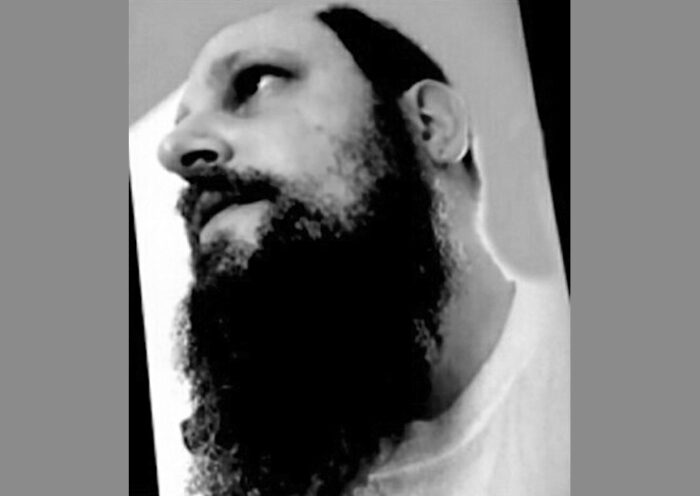
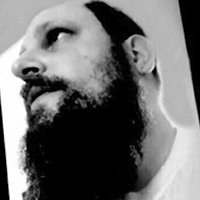
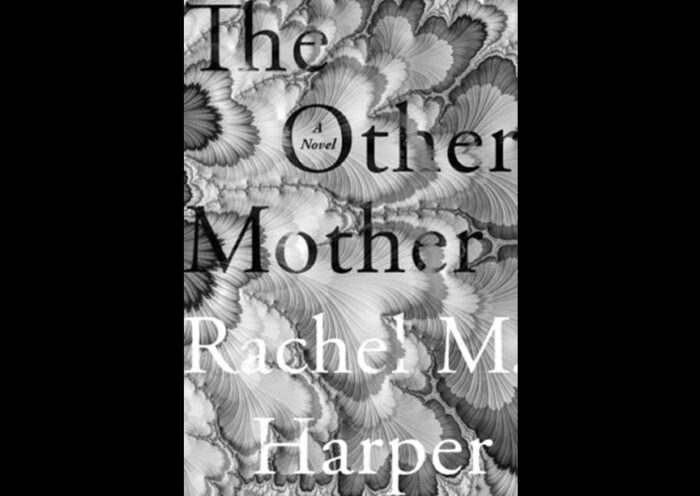
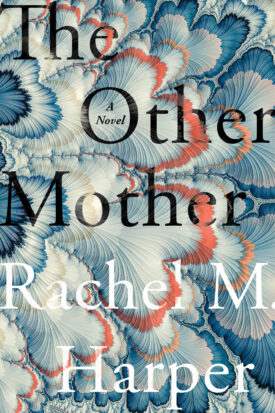


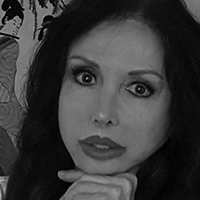 Linda Boroff graduated from UC Berkeley with a degree in English. Her writing has appeared in McSweeney’s, The Guardian, Hollywood Dementia, Drunk Monkeys, Word Riot, Hobart, Ducts, Blunderbuss, Adelaide, Thoughtful Dog, Storyglossia, Able Muse, The Furious Gazelle, JONAH Magazine, The Boiler, Cold Creek Review, and others, including several anthologies.
Linda Boroff graduated from UC Berkeley with a degree in English. Her writing has appeared in McSweeney’s, The Guardian, Hollywood Dementia, Drunk Monkeys, Word Riot, Hobart, Ducts, Blunderbuss, Adelaide, Thoughtful Dog, Storyglossia, Able Muse, The Furious Gazelle, JONAH Magazine, The Boiler, Cold Creek Review, and others, including several anthologies. 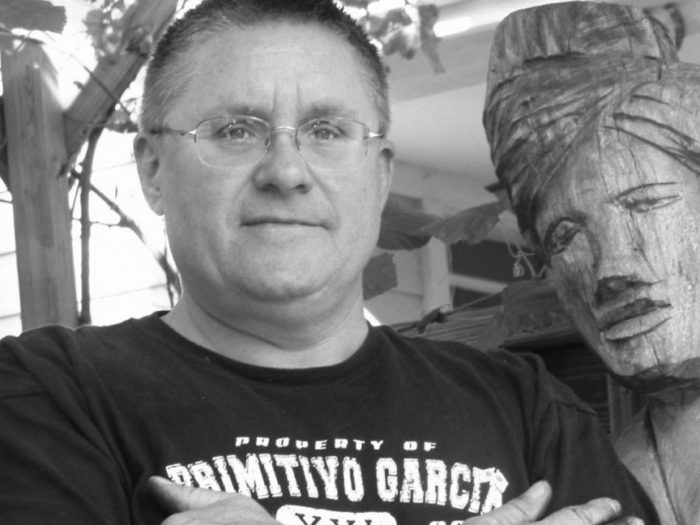
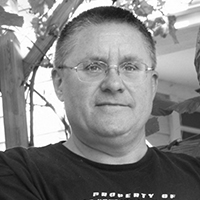 Dr. Patrick Dobson has worked as a journalist, book editor, and union ironworker in Kansas City, MO. The University of Nebraska Press published his two travel memoirs, Seldom Seen: A Journey into the Great Plains (2009) and Canoeing the Great Plains: A Missouri River Summer (2015). He teaches American History, Latin American History, and Western Civilization at Johnson County Community College in nearby Overland Park, KS. His essays and poems have appeared in New Letters, daCunha, Kansas City Star, Indiana Voice Journal, Garo, JONAHmagazine, and other newspapers and literary magazines. His essays and travel pieces can be viewed at
Dr. Patrick Dobson has worked as a journalist, book editor, and union ironworker in Kansas City, MO. The University of Nebraska Press published his two travel memoirs, Seldom Seen: A Journey into the Great Plains (2009) and Canoeing the Great Plains: A Missouri River Summer (2015). He teaches American History, Latin American History, and Western Civilization at Johnson County Community College in nearby Overland Park, KS. His essays and poems have appeared in New Letters, daCunha, Kansas City Star, Indiana Voice Journal, Garo, JONAHmagazine, and other newspapers and literary magazines. His essays and travel pieces can be viewed at 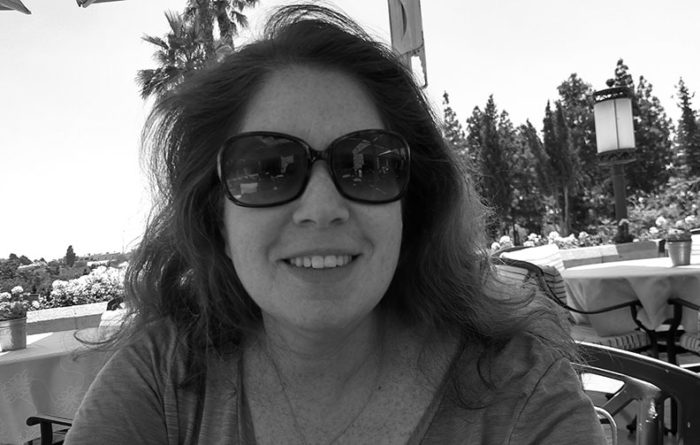
 Susan Kleinman’s short stories have appeared in The Baltimore Review, Inkwell, the William and Mary Review,
Susan Kleinman’s short stories have appeared in The Baltimore Review, Inkwell, the William and Mary Review, 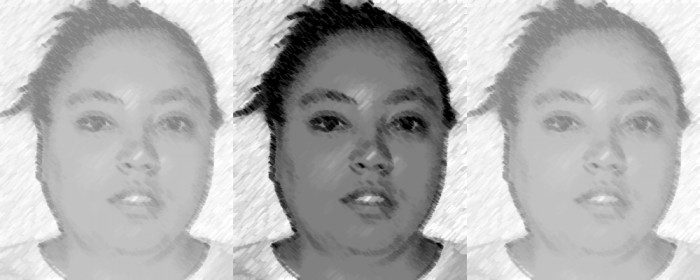
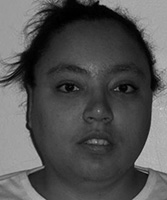 Abigail George is the author of ‘Africa Where Art Thou’ (2011), ‘Feeding the Beasts’ (2012), ‘All About My Mother’ (2012), ‘Winter in Johannesburg’ (2013), ‘Brother Wolf and Sister Wren’ (2015), and the forthcoming ‘Sleeping Under Kitchen Tables in the Northern Areas’ (2016). Her poetry has been widely published from Nigeria to Finland, and New Delhi, India to Istanbul, Turkey. Her fiction was nominated for the Pushcart Prize. She briefly studied film and television production at the Newtown Film and Television School opposite the Market Theater in Johannesburg. She is the recipient of writing grants from the National Arts Council (Johannesburg), the Centre for the Book (Cape Town), and ECPACC (Eastern Cape Provincial Arts and Culture Council) (East London). She writes for Modern Diplomacy, blogs with Goodreads, and contributed to a symposium for a year on Ovi Magazine: Finland’s English Online Magazine.
Abigail George is the author of ‘Africa Where Art Thou’ (2011), ‘Feeding the Beasts’ (2012), ‘All About My Mother’ (2012), ‘Winter in Johannesburg’ (2013), ‘Brother Wolf and Sister Wren’ (2015), and the forthcoming ‘Sleeping Under Kitchen Tables in the Northern Areas’ (2016). Her poetry has been widely published from Nigeria to Finland, and New Delhi, India to Istanbul, Turkey. Her fiction was nominated for the Pushcart Prize. She briefly studied film and television production at the Newtown Film and Television School opposite the Market Theater in Johannesburg. She is the recipient of writing grants from the National Arts Council (Johannesburg), the Centre for the Book (Cape Town), and ECPACC (Eastern Cape Provincial Arts and Culture Council) (East London). She writes for Modern Diplomacy, blogs with Goodreads, and contributed to a symposium for a year on Ovi Magazine: Finland’s English Online Magazine.
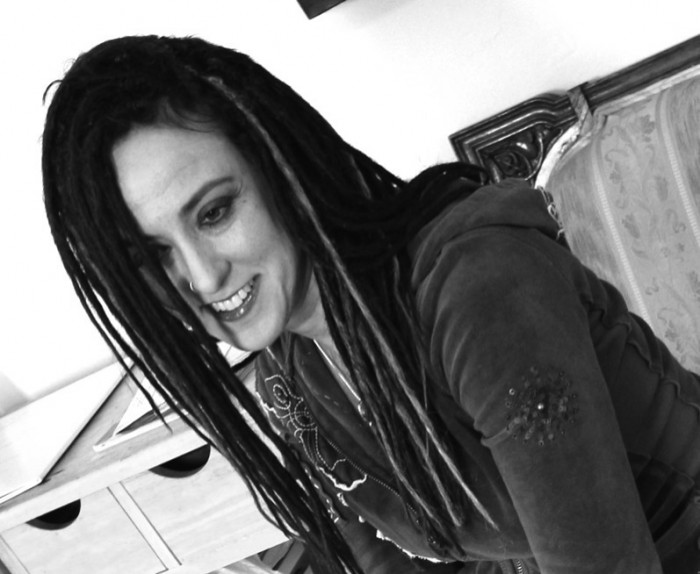
 o change: to make the form, nature, content, future course, etc., of something different from what it is or from what it would be if left alone. To transform or convert. Change implies making either an essential difference often amounting to a loss of original identity or a substitution of one thing for another.
o change: to make the form, nature, content, future course, etc., of something different from what it is or from what it would be if left alone. To transform or convert. Change implies making either an essential difference often amounting to a loss of original identity or a substitution of one thing for another. Ruth Gila Berger is thrilled to be published by The Writing Disorder. She has a piece in Frequencies 4 (Two Dollar Radio), April 2014, and another piece published by Permafrost, Spring 2014 (all three pieces are contained in a full length memoir in progress). Her resume has over a dozen finalist commendations, the most recent from Arts & Letters for their 2012 nonfiction contest. Past publications credits include Gulf Coast (where she was given an honorable mention in their 2006 nonfiction contest) Creative Nonfiction, Chelsea Review, Water~Stone Review, GSU Review, Great River Review and the Emrys Journal.
Ruth Gila Berger is thrilled to be published by The Writing Disorder. She has a piece in Frequencies 4 (Two Dollar Radio), April 2014, and another piece published by Permafrost, Spring 2014 (all three pieces are contained in a full length memoir in progress). Her resume has over a dozen finalist commendations, the most recent from Arts & Letters for their 2012 nonfiction contest. Past publications credits include Gulf Coast (where she was given an honorable mention in their 2006 nonfiction contest) Creative Nonfiction, Chelsea Review, Water~Stone Review, GSU Review, Great River Review and the Emrys Journal.











